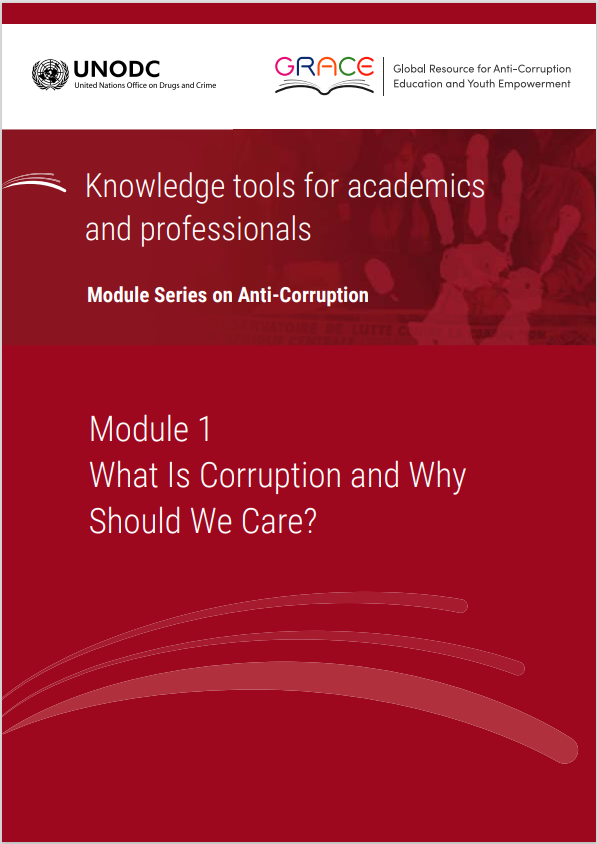This module is a resource for lecturers
Student assessment
This section provides a suggestion for a post-class assignment for the purpose of assessing student understanding of the Module. Suggestions for pre-class or in-class assignments are provided in the Exercises section.
The following brief essay assignment is recommended: Write a research essay of 1,500 words addressing a real-world example of corruption. The essay should document the behaviour that the corrupt conduct entailed, discuss the definition (or definitions) of corruption that fit the selected case best, describe the effects the corrupt conduct has had or is likely to have had, and employ at least two different approaches (economic, moral, legal, etc.) to analyse the situation. Students may summarize some combination of the economic, political, legal, or moral approach to understanding the corrupt conduct, for example, or focus - if justified - on some other aspect instead. Examples of corruption are commonplace in newspapers in most countries around the world, but if appropriate students could also be encouraged to interview people affected by a corruption scandal. Either way, students may choose a major scandal or a less known case. The point is for them to apply what Module 1 teaches in terms of the definition of corruption, its different types of effects, and the different disciplinary approaches to understanding it.
As an alternative, another format of student assessment may include assigning students to record a TED-talk-style video in which they are asked to discuss the following statements:
- Perception-based indices of corruption are outdated and inadequate for some countries.
- One of the main limitations of the United Nations Convention against Corruption (UNCAC) is that it does not criminalize patronage, cronyism, and nepotism.
- There are no major differences between different forms of corruption (i.e., bribery, embezzlement, trading in influence, abuse of functions, illicit enrichment).
 Next:
Additional teaching tools
Next:
Additional teaching tools
 Back to top
Back to top
